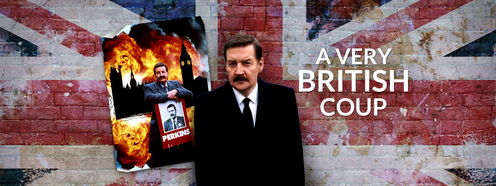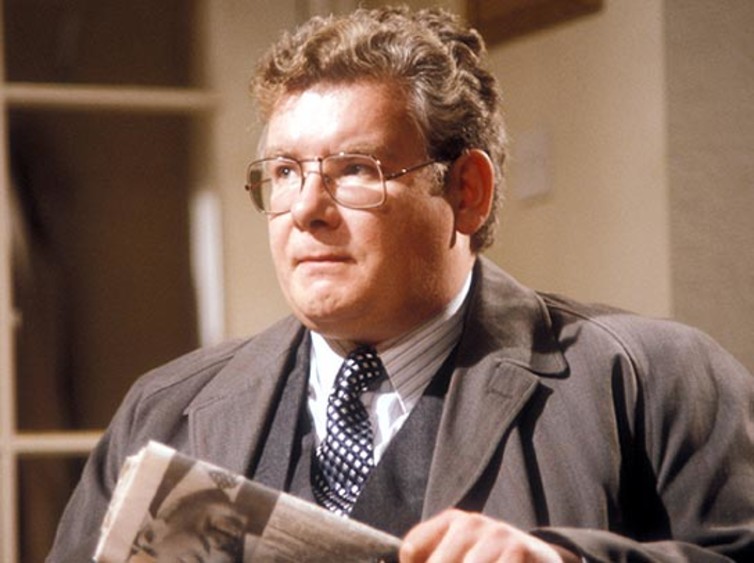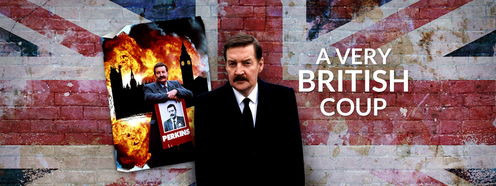- Polls apart - 4th March 2026
- Repeating on you… - 4th March 2026
- History man - 3rd March 2026

Over a year before the UK’s fateful EU membership referendum, BBC Four broadcast The Great European Disaster Movie. This was an “authored” documentary by Italian journalist Annalisa Piras. Co-produced with several European partners, it examined growing political tensions across the Eurozone.
The documentary is intercut with dramatised material set in an imagined future following the collapse of the EU. Here, increasingly isolated nations are descending into chaos, terrorism and belligerent nationalism. The film unleashed a firestorm of criticism from powerfully eurosceptic sections of the British press, much of it centring on the apocalyptic images of the “disaster”.
Framing a study of the EU within a thriller raises a curious issue – the lack of engagement with European politics elsewhere in the rich tradition of British thrillers. The long-running spy series Spooks, for instance, frequently explored topics linked to the EU in popular imagination. These ranged from immigration tensions to corruption in global finance – yet Spooks generally avoided placing such issues in a European political context.
Similarly, there have been many conspiracy dramas with an international focus, including Edge of Darkness (1985), The State Within (2006) and The Honourable Woman (2014). Yet these have again typically ignored Europe in favour of exploring tensions in the UK’s “special relationship” with the US.
This may seem a strange absence to note – it could be argued that the EU is too distant, bureaucratic or dull to offer obvious thriller material. Yet a more positive contemporary portrayal could be found in the 2015 transcontinental multilingual crime drama, The Team. This centred on the collaboration of national police agencies under the framework of Europol, mirroring how the series itself was a co-production involving multiple EU countries. Perhaps prophetically, however, Britain played no role in this vision of continental cooperation.
Europe’s sinister power
Britain did, nonetheless, have a much earlier tradition of thrillers engaged with the EU’s predecessor, the European Economic Community (EEC). Yet these had typically viewed it in more paranoid terms.
In 1982, Ron Hutchinson’s television drama Bird of Prey centred on hapless civil servant Henry Jay, who becomes embroiled in a sinister continental conspiracy after investigating the fraudulent activities of a European MP. The same year, Chris Mullin’s novel A Very British Coup depicted a left-wing Labour party winning a surprise election victory whereupon its radical policies, including withdrawal from the EEC, spark a conspiracy among the right-wing establishment to bring down the government.
[amazon_link asins=’B0053Y06MU’ template=’ProductAd’ store=’thebridgegall-21′ marketplace=’UK’ link_id=’e374a82f-6331-11e7-be61-5142311430e1′]
Nowadays euroscepticism is most strongly associated with the hard-right of British politics. Bird of Prey and A Very British Coup, by contrast, are more invested in left-wing anxieties of their era. This reflects how euroscepticism was initially more prominent within the labour movement and from politicians such as Tony Benn, who opposed the EEC’s enshrinement of market values.
In A Very British Coup, withdrawal from the EEC is part of the radical government’s wider opposition to free markets. Indeed, the following year a strongly left-wing Labour party would in reality put EEC withdrawal in its 1983 manifesto.
Of these two thrillers, however, Bird of Prey is more directly engaged with European politics. Its central criminal conspiracy, Le Pouvoir (“The Power”), structured to enable financial corruption by politicians and businessmen, is explicitly linked to the ECC. As Jay states in the series: “The closer we get to them politically, socially, the more the system will be operated here.” The overarching scheme is for a sinister multinational based in Rome to create a privately operated Channel Tunnel. Through this they aim to monopolise transport in “Great Britain Ltd”.
The ‘national us’
The primary British conspirator is nationalistic security chief Charles Bridgnorth. He disparages the “bloody foreigners” he works alongside while passionately expounding on the scheme’s value to “the national us”. Otherwise, he declares: “The decline continues. Grass grows on the pavements. Sheep graze on the airport runways. We’ll be the rumour of a thing that’s died. Didn’t there used to be a country once called England?”

Bridgnorth represents a tension in the project associated with the Conservative leadership of Margaret Thatcher – an awkward alliance between global finance and bellicose nationalism. Casting suspicion on both poles, the drama instead aligns its sympathies with the protagonist. A suburban-dwelling stamp collector, Jay embodies a cosy, insular Britishness untroubled by either nationalism or internationalism.
Two years later a sequel, Bird of Prey 2 (1984), saw Jay battle a new plot to corrupt a transcontinental electronic banking system. This time, however, the conspiracy is fully European. With no equivalent character to Bridgnorth, the Thatcherite rhetoric is absent. Indeed, over the course of the 1980s Thatcher herself, a one-time EEC supporter, was developing a more hostile attitude towards Europe.
Concurrently, euroscepticism softened on the left, as the EEC was increasingly seen as a bulwark against Thatcher’s assaults on areas such as workers’ rights. Notably when A Very British Coup was adapted for television in 1988, the radical Labour government’s commitment to EEC withdrawal was significantly downplayed.
This may also account for the EU’s absence from later thrillers. Over subsequent decades, the hard-right nationalism of Bridgnorth has come to dominate the anti-Europe argument and drown out the leftist case. Yet perhaps of equal significance is the cosy insularity represented by Jay, epitomising a lack of positive or constructive engagements with Europe in British culture. In the end, this would prove the vacuum in which Bridgnorth’s perspective could thrive, embodied by the likes of Nigel Farage and UKIP.
Joseph Oldham has previously received funding from the AHRC and the University of Warwick’s Institute of Advanced Study. More detailed analyses of Bird of Prey and the television adaptation of A Very British Coup appear in his book Paranoid Visions: Spies, Conspiracies and the Secret State in British Television Drama (Manchester University Press, 2017).










